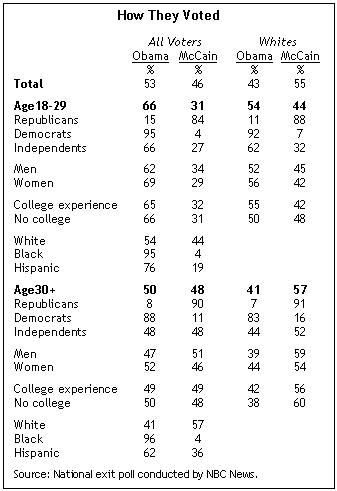Matthew Yglesias's Blog, page 2386
March 17, 2011
The Illusion of Disagreement
I want to associate myself with Ryan Avent's thoughts on the scientific status of economics and especially these remarks on how the nature of popular political punditry tends to create an exaggerated view of the scale of disagreement:
Why does it seem to laypeople as though economists can't agree about anything? I can give you a few reasons. First, Paul Krugman isn't going to write a column saying, "Here are the many, many things on which both I and my University of Chicago antagonists agree," and the Journal isn't going to get Gary Becker to write a column saying, "Indeed, on these many things we see eye-to-eye." Second, the most riveting economic events are those, like global recessions, that occur infrequently, and about which there is far less certainty than other, more common events. Critics make hay of the fact that economists seem not to have come any closer on these issues in 80 years, but this amounts to no more than academics debating the meaning of the first lab test while they run the second. And third, the stakes of the policy debate are high, and so commentary is passionate and intense. It begins to seem as though economics is riven through by unbridgeable gulfs, and that these gulfs are as yawning now as they've ever been.
I think that's all spot on. The fact that the economics profession can offer so little in the way of consensus guidance about dramatic, crucially important events like the panic of 2007-2008 is a huge problem and a very legitimate knock on the enterprise, but it doesn't actually undermine the overall epistemic status of the discipline. The hope is that over time things improve. And, indeed, for all the horrors of the current recession it's been managed much better than the Great Depression of the 1930s was. Progress is happening. The only way to make more rapid progress on the science of macroeconomic stabilization would be to have many more recessions so as to gather better data. Paul Krugman emphasizes that to understand the problems facing the American economy today you have to focus on the special economic properties of a large economy in an liquidity trap. But (fortunately), human history isn't littered with examples of such a situation, so it's challenging for him to compile a quantity of data sufficient to persuade all of his colleagues. That leaves people relying heavily on stylized models which are inherently open to contestation as to the validity of their underlying assumptions. That's a huge problem for the world, but it doesn't reflect some kind of malpractice by scholars.


John Boehner Loves Socialism

Brian Beutler notes the irony of conservative affection for socialism when it comes to the subject of nuclear power. He quotes John Boehner:
But there are nuclear reactors operating all over the world. Eighty-two percent of the electricity produced in France comes from nuclear sources, and has done so successfully for decades. Only 20 percent of the electricity in the United States comes from nuclear sources. So I think let's learn the lessons, let's understand what safeguards if any additional safeguards need to be put in place. But let's not just say like we have for the last 30 years, we're not even going to look at it because we're afraid of it.
I think it's important to be clear about this. It's not just that France has high taxes and trains and "socialism." France, almost uniquely in the modern world, features large state-owned enterprises. In particular, both Électricité de France, the world's largest utility, and Areva, the world's largest builder of nuclear plants, are largely owned by the French government. As of today, they're formally organized as S.A. private firms rather than E.P.I.C. state-owned firms, but the state owns majority stakes in both of them.
Now maybe France is doing this right, but it's a strange model for conservatives to be pushing, especially since they don't even seem to know what the model is.


The (White) Kids Are All Right
Jon Chait argues that cohort replacement will, in fact, turn the country more liberal and I'm wrong to foresee the Mississippification of America as our future. He points to this chart:

It seems to me that the choices really are that Republicans will achieve parity among Latinos — which probably depends upon getting them to identify with the whites and against the blacks — or else Democrats will have a general working majority, interrupted by recessions, scandals, and whatnot.
The point being that if you look at my generation, we're pretty liberal irrespective of race. There's clearly something to that. Then again, 2008 was a strong Democratic year across the board. The McCain-Obama split for whites under 30 is basically the same as the McCain-Obama split for the overall electorate. So if we assume that the "real" split in the country (controlling for recessions, Bush fatigue, etc.) is about 50-50, then what it takes for white people born in the 1980s to become a Republican-leaning demographic is for the GOP to moderate its views on gay marriage and for more 80s-born whites to become upset about income taxes. The gay moderation is already happening, and since people tend to earn more money in their 30s and 40s than they do in their 20s, I think the latter will probably happen too.
But before I speculate further, obviously there's a huge wild card here around the future course of immigration policy. What we're doing right now obviously doesn't work, but there also seems to be no political path forward to change. But presumably something will happen at some point and whatever that "something" is, it'll have implications both for demographics and for where Hispanics fit into the political system.


Ireland's New Foreign Minister Hits NYC St Patrick's Day Parade For Anti-Gay Bias
Irish foreign minister Eamon Gilmore criticized the New York City St. Patrick's Day Parade for its ban on LGBT groups, saying, "Exclusion is not an Irish thing."
Gilmore, who assumed his new post in the last week, made the remarks Wednesday during a historic meeting with Irish LGBT leaders at the Irish Consulate in Manhattan. In addition to the gay boycott, many allied political leaders avoid the St. Patrick's Day in New York City because its sponsoring organization prohibits LGBT participants from marching under the own banners.
This dispute has wracked New York politics since I was a kid. Hopefully with intervention from the other side of the Atlantic it can be resolved. Elsewhere in northeastern ethnic politics, it's also the 150th Anniversary of Italian Unification. There's a big statue of Garibaldi in Washington Square Park where I grew up. In that pre-Internet era, the only way for Young Matt to find out who it was a statue of was asking his parents who, of course, didn't know and didn't have access to Wikipedia either. So it took me until 11th grade European history to unravel the mystery.


The Health Care Cost That Dare Not Speak Its Name

Excellent Jon Dwyer article on the health care cost nobody wants to talk about, enormous pay packages at hospitals largely dependent on public money:
At Bronx-Lebanon, a hospital that exists only by the grace and taxed fortunes of the people of New York State, the chief executive was paid $4.8 million in 2007 and $3.6 million in 2008, records show. At NewYork-Presbyterian, a hospital system that receives nearly half a billion dollars annually in public money, the chief executive was paid $9.8 million in 2007 and $2.8 million in 2008.
And on and on and on.


Conservative Anti-Anti-Racism
Here's an interesting conservative response to the observation that white people were disproportionately turned off by the Democratic Party's performance in 2009 and 2010:
Update: And just in time, Yglesias and Think Progress publish this tripe. Here's a hint, you cheap race-baiter. Just because the majority of people wanting something might be white, doesn't make it automatically racist. Indeed, the belief that a view is necessarily racist unless there is a rainbow of colors supporting it is itself racist.
I defy you to read my post and find any instance of me calling anyone a racist. The hyperactive response here does, however, remind me of one of the signal qualities of modern American politics, namely conservatives' absolute conviction that overzealous anti-racism is a major social ill. Personally, I don't see it and I'm genuinely staring across a void of incomprehension when I see this sentiment from the right. But it's clearly the major driver of conservative movement thinking on race in America.


No To Taxi Medallions

(cc photo by rjs1322)
Dave Alpert reports:
Another bill that's likely to generate more serious debate is a measure from Thomas, Michael Brown (at-large) and Marion Barry (ward
to establish a system of taxicab medallions, with separate categories for DC resident drivers and non-resident drivers, as well as special categories for taxis operating in underserved areas and low-emission (hybrid) taxis. This topic is worth its own, separate post.
I think it's important not to overcomplicate this issue. Adopting a taxi medallion system would be a bad idea. Right now, the supply of taxis is driven by market forces. The fares are regulated at such and such a level, and the city supports approximately as many cabs as it's profitable to operate at that level. If we use medallions to restrict the supply of cabs to below the market level, cabs will become scarcer. In particular, they'll become scarcer in more peripheral parts of the city. When DC has all the cabs the market can bear, that means lots of cabs in core areas and some cabs in other areas outside the saturated core. If you restrict the supply of cabs, the core won't saturate and drivers won't want to go anywhere else. You can try to make this up by creating an ad hoc special category of medallions "for taxis operating in underserved areas" but there's no reason to think a central planner is going to get this done better than the market.
You need to ask yourself, what problem is this supposed to solve? The problem it's supposed to solve is that incumbent cab drivers would like to limit competition and make more money. That's understandable. I'd like to see a medallion system for new bloggers implemented for the same reason. But it's still a terrible idea. Mayor Vince Gray owes the taxi driver lobby a lot for their support during his election campaign, but that only underscores the fact that this is a straight-up giveaway with no real policy rationale.


March 16, 2011
Endgame
Romantic, not disgusting yet:
— Progressives need to learn to engage on monetary policy.
— Do Republicans know that the "World leader in the design and construction of nuclear power plants, and the supply of fuel, maintenance and modernization services" is a state-owned French firm.
— Staten Island loves pain meds.
— Ann Friedman is a great get for Good, and this is a very smart post on the exciting possibilities of new media.
Phoenix, "Lisztomania".


Exchange Rates as a Monetary Policy Target
David Romer's reflections on macroeconomics after the crisis are excellent, but I didn't understand one sub-point here about monetary policy:
The simple "one instrument/one target" view of monetary policy (where the instrument is a short-term interest rate and the target is inflation, or a weighted average of inflation and the output gap) is too simple. There are other instruments (exchange market intervention, capital controls, margin requirements, down payment requirements, capital requirements, and more), and other potential targets (notably the exchange rate and indicators of financial risks).
Why would a central bank target the exchange rate over and above inflation and output?
Imagine a country with low and stable inflation and steady real growth with no output gap. Firms in the tradable sector are still going to be wanting a cheaper currency (to increase demand for their products) while firms in the non-tradable sector will want a more expensive one (to increase their consumption possibilities) but why would the central bank get itself sucked into that? If you're hitting output and inflation goals, it seems to me that you're doing it right.
Now of course if you're not hitting your goals, the exchange rate could be the mechanism by which you adjust. Nominal yuan appreciation would reduce inflation in China, and currency depreciation was used to increase output in Israel during the crisis. But I don't see how this becomes an independent consideration.


Motivating Density

Phoenix is largely a stereotypical sunbelt "no there there" sprawling auto-oriented city. But it does feature a smallish, but very nice, walkable urban downtown core. And it also has a new light rail line, with more lines to come. These developments are, it seems to me, very beneficial to the city and should keep paying off down the road.
But with my wonk hat on, it's hard for me to imagine that the light rail system passes a cost-benefit test relative to just improving bus service. That is, however, a bit of a narrow-minded way of looking at the situation. The key element to downtown Phoenix's success is that there's been a lot of different rezoning initiatives (here's one) to allow for increased density, more mixing of uses, and reduced parking requirements. It's this rezoning to allow for more economically efficient use of the land that's driving the benefits. And a city could—and should—do this without necessarily waiting for the construction of expensive light rail systems. But when you're talking about political change, you can't leave the politics out and in this case it seems to me that they largely come as a package deal. Real estate developers and businesses like the idea of fixed rail stations to anchor development. And they also can serve as key elements of a political coalition for rezoning. Meanwhile, the idea of rail construction paints a picture for the city's residents of urban transformation instead of "exactly the way it was before, but more crowded." So the package works.
But of course the converse is also true. If a new transit system does anything useful, it will raise the price of station-adjacent land. Whether that constitutes a private benefit to landowners or a broader economic benefit to the community is almost entirely contingent on upzoning the land to increase the number of people able to take advantage of its increased value.


Matthew Yglesias's Blog
- Matthew Yglesias's profile
- 72 followers



